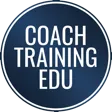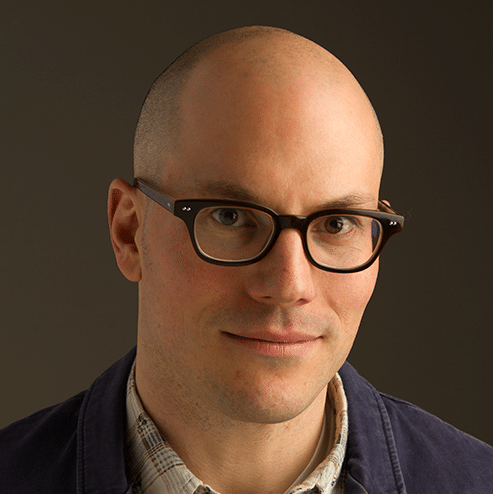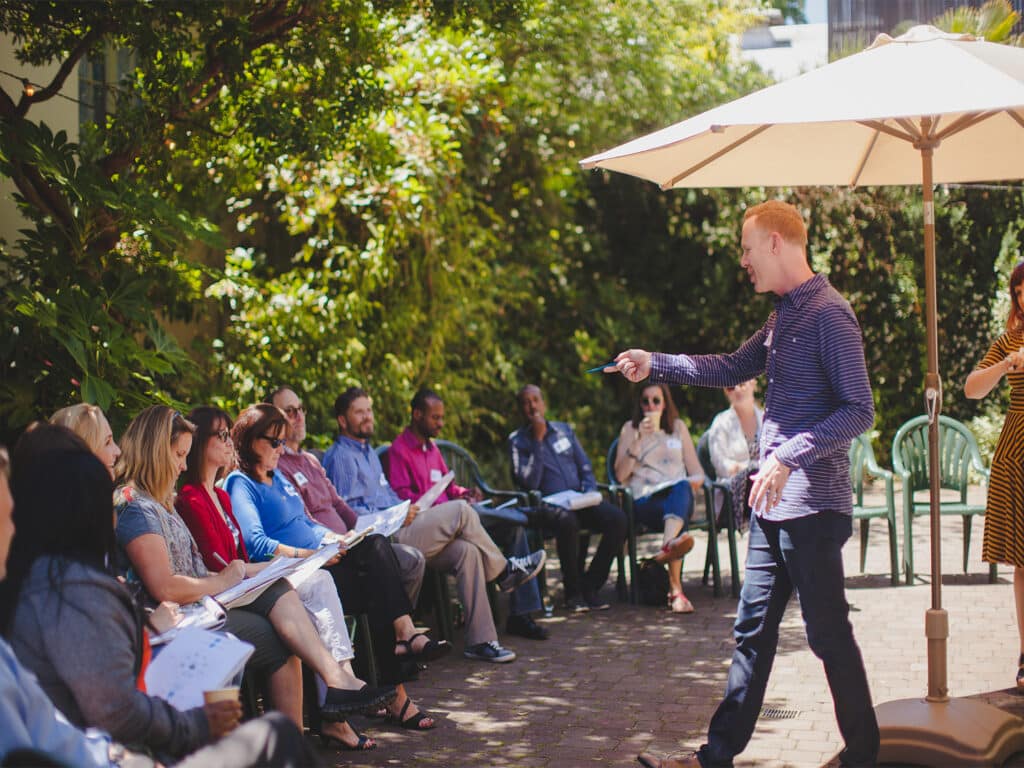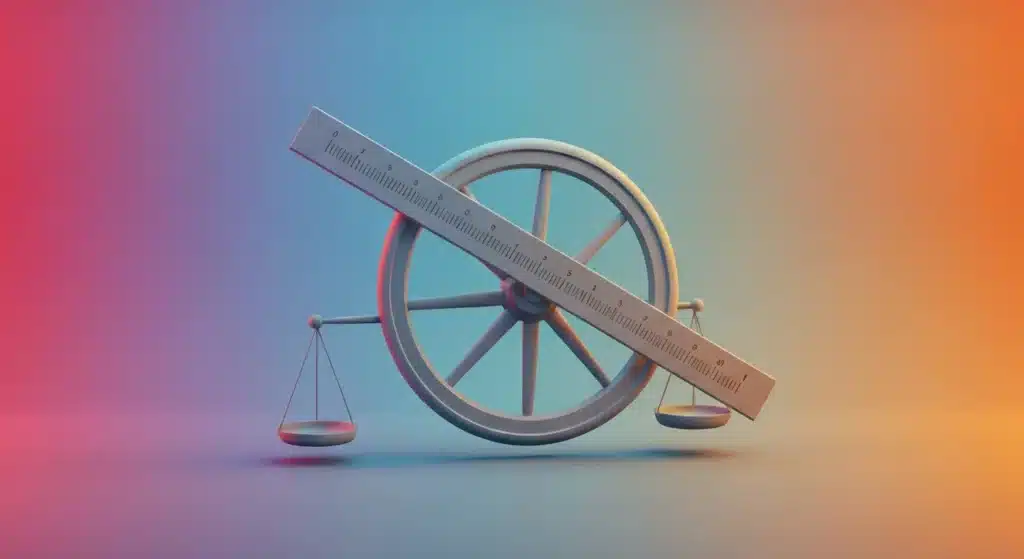Listen to Podcast
Be Curious!
Raj Anderson and guest experts answer your coaching questions each week!
In Coaching to Flourish Season 3 Episode 15, Raj Anderson is joined by Coach Training EDU founder John Andrew Williams for a rich discussion about community, doing your life’s work, and methods for envisioning and building towards the future.

Live Transcript (unedited)
[Raj Anderson] We are live. Welcome to the Coaching to Flourish podcast everyone. I am your host, Raj Anderson, executive life coach and coach Assessor. And I’m here again, I’m excited to be here with John Andrew Williams, the founder of Coach Training EDU. How are you doing, John?
[John Andrew Williams] Doing well. Today is a beautiful spring day. I start to see the, the leaves and the blossoms open up a little bit more every day. And yeah, feeling really, really grateful. Really thankful. Happy to be here. It’s good to see you Raj.
[Raj Anderson] Yeah, it’s great to be here. And John, I have some businessy questions today and I’m excited cause you are running a workshop tomorrow, I believe, on business building. And you’ve been running various other workshops, and there’ve been lots of different topics coming out from Coach Training EDU. So why are these workshops important to you John?
[John Andrew Williams] Yeah, I’ve been planning on doing these workshops for a while and, and now we have the time and space to do them. And, uh, I think, when you’re looking at establishing a coaching practice, or really trying to, you know, create some change in, in this world, there was an element where I, I knew that I needed to help other coaches be successful in order to accomplish the mission of really moving the field forward. Because when I started coaching, and I found coaching when I was 23, I mean, this is back in the early two thousands, so this is like, before, let’s say – you know, the ICF was founded in 1995, I find coaching 2003, you know, this idea of, of coaching was so new. And to be able to sell something that new was a stretch, because people didn’t even know what coaching was, we were in our twenties. Amois was putting her practice together, I was trying to put my practice together. So we had to really like, learn how to market something that was untested.
Now when coaches are saying, oh, I’m a coach, people have an awareness of what that is, but there’s still a misconception of what coaching actually is and isn’t. Most people still think that coaching is just giving good advice, or you’re working with an expert in life, and so you have to be an expert in life in order to be a life coach. That is simply not true.
So back, back in the day, we had to like learn all this in real time, face a lot of, you know, education and educating people how, like what coaching actually is, how to make it work. And, uh, these workshops are an extension of everything I’ve learned in the past 15 years, of marketing, of doing this work, that I can put together for the Coach Training EDU community. That’s what these workshops are.
And, uh, from a larger standpoint, when I first started this out, I knew that I had to learn how to build my, my practice in order to be successful. And then train other people to do the same thing. If we could do that, then what’s going to happen is there’s gonna be a field, there’s gonna be a state or, uh, an education department or a country that adopts coaching on a larger scale. I wanna be a part of that. I wanna see that happen, because I believe in this profession, and I think that coaching is, is on this tipping point. So these workshops play into that larger vision of helping coaches be financially successful, helping them be sustainable so that they can continue to move the field forward. That’s the larger overarching purpose behind the workshops. For the individuals, you get to have community, a place to look at your own business, get feedback, get support. Yeah. I’m laying out all the things I know best to help, help people establish a practice. That’s what these workshops are about.
[Raj Anderson] How do you join the Coach Training EDU community? Because you’re spreading the word far and wide, and I’m starting to get these questions. I’m curious.
[John Andrew Williams] Uh, to, to apply. You know, we have, we have a new offering too. We’re putting together a foundation course, which is only an eight week course. So it’s not a certification program, but it’s designed for people who, let’s say are consultants or the partners of people going through certification or, uh, people who want to have at least a life coaching foundation, but not necessarily do it as their main profession. So we get this ask from, sometimes from universities. They’ll wanna send, uh, you know, a number of people through, but they don’t wanna do the full 24 week program. So we have an eight week program. Uh, that’s probably the easiest way. And that is new as of yesterday. Like, we literally just started changing over the website and everything like this.
We thought we were gonna do it, uh, the beginning of April. Uh, but, but we took a little bit of time. And fun fact, I started my life coach training on the weekend of April Fools Day, which I always enjoy so much. So, I just like it. I like it. It, uh, it’s a good, it’s good times. So the idea of having, you know, beginning of April, another offering and another thing out there to, help design, to help introduce people to the field. Um, we’re excited about that.
[Raj Anderson] I’m so excited about that. I can’t wait to hear more and chat more about that. I think – I’m with you. The world needs more coaching and, um, and talking about, I can hear your passion and your purpose and mission. What does your life’s work – I know you’ve used that saying, do your life’s work – What, what does that mean to you, John?
[John Andrew Williams] Yeah. This is a question that, Amois and I talk a lot about too. You know, it seems that there are a couple different categories of life’s work. And they’re, uh, we’ll call it the very biggest, you know, legacy category of what, what do you feel like you were born in this time and space in the larger realm of history to help accomplish? Let’s say that’s the largest, you know, the largest vista. And then it could go from that end of the spectrum to the very close at hand, uh – I have to do dishes or laundry or clean this desk, or, the most mundane thing that also can, you know, serves a larger purpose as well.
And I, I think each of us has an opportunity to define what life’s work means for us in the moment. The important thing is we ask ourselves, we ask ourselves the question. That’s the important thing. You ask yourself the question, are you doing your big life’s work? Are you doing the life work, life’s work that is in front of you?
And the, the big life’s work, the thing that I find a lot of people will press the snooze button on it. They’ll just say, I’ll get to it later. We’ll do that later. I have to do these things first before I do that. Uh, that’s a, that’s a slippery slope. And if you’re in that slope – and everyone’s in that slope for some to some degree.
But there, there’s a different texture to life that starts to become apparent when people start – and I’ve experienced it personally. I’ve seen it professionally in other people’s lives. When people start taking those action steps, and not just dreaming, but doing the dream – do that dream. When they start taking little steps to start doing the dream, uh yeah. Things get exciting. Like, you know you’re on it when you wake up and you go, you know what? I’m doing something today I’ve never done.
You know, how many days a, year do you have that? How many, you know, how many days a month do you have that? Uh, and that to me is, that’s that’s the texture that arises that, I really have seen it, experienced it personally. And then you see it professionally.
Like when people, when I mean, for me, it’s the coaching world, when coaches say, Hey, I got this contract with this hotel group of, I’m working with all the executives in this hotel group. And, or, you know, I’m flying across the world. Like you, like you, Raj, like you have handfuls of these kinds of, have never been done before milestones.
And it’s, I mean, it’s like a series of business firsts. But I think what it comes from is a series of action firsts. Like, how many action firsts are you doing? How many do you have planned? And when you start to, to organize your life around – Yeah, that big goal, that big dream that I have. What are the, what are the series of action firsts that need to happen in order for that big goal to be accomplished? That’s when you know you’re on your path to your big life’s work.
[Raj Anderson] I love that, John. And now I’m hearing you say about kind of not pressing the, the snooze button on these things. And we also noted, you said right at the beginning around workshops, you shared that we have the time and space to do them now. And sometimes when I’m, um, kind of working with new coaches, they feel like they have to have to have everything, right? You have to have everything together, and the website together, and we’ve gotta do the podcast now, we’ve got to do the workshops now. But I’m almost hearing a, a different approach from you. You’re like, we have the time and space for it now. What, what does that mean?
[John Andrew Williams] I was working with a new business coach and she was, she was talking about working with this other organization where she wanted to implement this change in the sales department or, or something like this. And so she had this thing planned out. And she was talking like working with another founder, and how the other founder was procrastinating and all of this stuff, because they’re just simply overwhelmed. They have, you know, all these things going on. I’m sitting to myself and thinking that’s, that’s the job description of a business owner or a founder, or someone doing something, is to be okay with everything not being perfect.
Be okay with, you know, like – so it’s almost like, uh, is it an absolute dumpster fire? No. Okay, well then what, what is? What’s the dumpster fire? And go and, and put, you know, basically you have to be a firefighter. Like you have to look at it as – you know, in an ideal world, yes, I’d love to have everything totally mapped out. And you know, the perfect executed strategy plan.
Uh, let me go into a, a room and you know, get, get the branding completely perfect. Get the, you know – this is completely perfect, this completely perfect, all of this stuff, like completely done. And then I’ll roll it out in this perfectly orchestrated, you know, 1, 2, 3 plan. Uh, I’ve never been even close to that. On a scale of one to ten, I think I do that maybe a two.
Uh, it’s more like, Hey, let’s just try stuff. Let’s throw it out there. Try stuff, try stuff, try stuff. Let’s keep throwing stuff out there. Let it be messy. Let it be messy. Then we’ll clean it up. But it’s that, we’ll clean it up part that to me, like that’s the exciting part with – because then I know, okay, now we’re gonna make it good. But it’s okay for it not to be perfect right away. And I know that drives some people nuts. That’s, that is not, that is not – I’m not saying this is a strategy that I would adopt, but this has just been my strategy that I’ve used that’s had – it’s worked. It’s a strategy.
Uh, and I think that there’s different elements that people have to find the strategy, their comfort levels that they deal with. But when they’re, when this marketer was telling me about this other founder, I’m like, that sounds familiar. Like, yeah, it’s – my to-do list. Like I, I have often – I tried this thought experiment. If I were, I was thinking to myself, okay, how much time would it really take me if I were to be completely – if I could press the, the stop time button and everything in the world stops except me. How much time would it take to make everything like, so perfect, and then press resume button, and that I’d have everything in place? I think it would take three years.
I think that’s how long it would take to do all of the vision stuff that I’d actually want to create. It would take about three years. And I think, yeah, that’s, that’s not gonna happen. So with life in there, with how long is it gonna take? Nine years? Are we gonna ever get there? You never know. But I think it’s, it’s these kind of mental thought experiments that you get used to this.
Then you ask yourself, okay, so what’s the minimum viable product? What’s the MVP? What’s the thing where it can still provide value, and get revenue going and, and do and show up and, and take the risk. You know, uh, clean this up so you know, you can give value.
And so what we did in the last two years is I emphasized researching, looking at the 2.0, the health board, the relationship course, really looking at the product. And saying, you know, it’s been a couple years since I went into that, you know, full force. We went into it full force the last two years. Our product is really good. We, it’s updated. The 2.0 is, it’s, you know, maybe twice as substantial as it was before. And, to the point where we had to take stuff out. We’re like, okay, this is now too much. The feedback we’re getting is it’s overwhelming, we have to take stuff out of it. But that’s okay cause we can put it into another course.
So, uh, now that we have that done, now it’s time to start community building and doing these business building workshops. And that’s where, I mean, like we have space now. The research phase of the 2.0 and 1.0 feels more like it’s on, um, we have a pace for that now. We, you know, we set aside the summer to review all of the research over the past academic year. Uh, we have a lot of systems now in place for the continual updating of the curriculum, and that feels amazing to get systemized stuff.
So, yeah, messy. Was it perfect? No. Were there typos? Sure. Are there typos now? Nah, maybe a couple. But will there always be? I don’t know. Maybe, maybe not. If there are, let me know. I have a classics professor, he would, he, he would – I could just see him now. He’s like, he, he is livid at this. But uh, what can you do?
[Raj Anderson] I’m hearing, so, progress versus perfection.
[John Andrew Williams] There’s a balance point between rolling something out that is, you know, professional, and, uh, it works. When I first started training, there was an understanding of the people I was training that this is a new, this is a new program. They’re going to be, it’s gonna be messy, but you’re gonna get value and you’re gonna be able to provide value.
And I think there’s a balance point between that versus, okay, this is a completely polished, like really smooth, you know, highly, attuned program. Uh, you know, we now have accomplished that, but it’s only after 15 years do I feel like, yeah. Like our program now is, it’s good. Like, it’s solid. It’s, it’s benefiting from, you know, literally hundreds of people going through and giving their feedback.
So when, once that, when that happens, that takes a decade. I mean, even now, we had a trainer meeting this morning. There was, uh, a slight, uh, a slight, you know, change that we have to make. And it’s not huge, but it might make a large difference. And it’s based on feedback. And so you, you start adding that feedback, and let’s say you have 20, 30, you know, 40, a hundred pieces of feedback.
The question is, okay, how can you create something and then go and get a hundred pieces of feedback on it? That’s the mindset. And what happens I think in our society is we get so trained from an education standpoint to try to make it perfect right away because everyone is in this fixed mindset.
Everyone is is so fixed mindset oriented, that even making a mistake, especially at the beginning, we’ve all been trained to be phobic of that. We’vr all been trained to like almost have failure phobia. So what you do instead is you like literally try to make it perfect, make it the very best thing ever before it’s even rolled out, before it even sees the light of day. Half the projects in that space don’t even make it out the door. And when they don’t make it out the door, they, they benefit nobody. And so it’s like, getting the project out the door, at least to get some feedback on it – and be be honest with it. Be like, yeah, this isn’t perfect, but it’s, it will get you someplace.
Like, so it’s not like – I’m not trying to like push like, you know, something that’s not completely perfect and say like, this is the best thing ever. It’s, no, this is a, this is a project. This is the beta phase. This is, we’re trying this out. Give me a chance, gimme time to make it perfect.
Please, if you’re building a coaching practice, take all that pressure off. You can tell people, this is new, you’re new. This is, it’s okay. You know? And when that, when you start to build in that space, then you have time and energy to make it perfect, make it more polished. You raise your rates, you get to a certain place. That’s how I did it.
[Raj Anderson] And, and that is something that I do really admire about you, John. And it’s, it’s helped me be incredibly courageous. So I am inspired today. And I’m like, hmm, a couple of things that I might be taking a leap on in the next –
[John Andrew Williams] What are they? Where are they? let’s do it. What’s thing one? What’s leapy thing one?
[Raj Anderson] Uh, I think leapy thing one is, uh, I keep getting asked by coaches just to run, you know, a bit of a community. Um, some group conversations. You know, um, I often have people that I work with, especially women, uh, on a one-on-one, um, that I might have coached, or they might have been part of a program, and they want connection. Right? And they want to chat through some things or a bit of a mastermind. Not forever. And I think part of this is feeling lonely, right, in business, which is a question that I had for you. Um, and I’ve had few messages saying, how can I get on your schedule? But I don’t really know if it’s coaching, I kind of need connection. Yeah.
[John Andrew Williams] It’s time. Leap away.
[Raj Anderson] Yes. So, yeah, I’m inspired. I’m gonna leap away. What are your thoughts on that though, John? Are people feeling lonely in business?
[John Andrew Williams] Totally. Yeah. It’s a thing, especially when you’re entrepreneurship based and, uh, there is an element of solo, a lot of solo work. Um, I think for me, my situation’s slightly different because I work with Amoise, you know, she’s just, throughout many times throughout the day. Like we’ll connect and debrief, uh, run ideas, you know, strategy.
And I found it’s really helpful to have someone who understands the field who’s in it, but not in the day-to-day of it. Oftentimes I’ll say, Hey, I just need you to listen in on this and let me process it out loud. And it becomes really clear, like, okay, like, yeah, this is the direction it needs to go in.
Um, so I have that. So I feel like I’m, this is, it’s an unfair advantage. It’s not, uh, I think a lot of people, most coaches are, you know, their partners are either at work or they’re doing something completely different, and they’re, they’re building it on their own. They have their partners support, but it’s not like they are, uh, you know, have, have a complete sounding board like that.
Uh, and it does become a thing. And I think if you look at some of the ingredients of resilience, connecting with people, having that support system is a huge, huge idea of – is a huge advantage, even in the resilience idea.
So when you, these ideas of connection, building your people mindfully, like building your connections mindfully, it’s a really valuable, uh, resource for people to have. You gotta do it and, and treat it seriously. And now that we’re, you know, post pandemic too, the opportunities to connect in person, even people in business. Was just talking to a friend and we’re gonna start doing like every other week, get together, you know, in the morning for an hour just to talk whatever. You know, that that’s what people are really looking forward to.
So you can find it. You know, find the in person people who are just wider, and then find your very coach specific people in your communities. That seems to be an antidote to loneliness. I would embrace it, I wouldn’t try to fight it and be like, oh no, don’t feel lonely. It’s like, no, no. Listen to that one, and take the action steps to honor that feeling.
Some feelings, you know, like the imposter syndrome, things like that. No, you can let those, like you can throw those to the birds. Like, that’s experience, that’s rinse and repeat. That’s adopt a growth mindset. Like, you know, leave perfection where it needs to be. Like, you know, uh, it’s a tool, it’s not, not a state of being. You know, it’s a, it’s a lens through which to look at something and you need to be able to put that lens on and off at will, is a useful activity. With looking at developing loneliness, you know, the ideas of connecting around loneliness, you know, those are actions step oriented. Find your community, build it. It’s mindfulness work, it’s being vulnerable. All those things. It’s worth it.
[Raj Anderson] Build connections mindfully. So I, I’m an introvert and I do like to spend time on my own, yet, and I don’t say this slightly, I would encourage anyone who’s listening, if you have not joined Coach Training EDU community, I would say join it. Try one of the courses. Because this, this is what fills my cup. You know, I, I, as you know, John, I play a number of different roles. I am a consultant, I’m a coach, a facilitator. Yet this is one thing that I have not wanted to let go of, or move away from, being part of coach training edu community. Because it fills my cup, I get to meet so many different people, and yet for me it’s also about growth, right? You become the average of the five people you surround yourself with. And then I like to surround myself with people who are a bit more informed than me, or know more, or John brings a different perspective, and it helps me to grow rather than thinking that I have reached where I need to be. Because I haven’t, right? It’s ever evolving for me.
[John Andrew Williams] I’ve had this idea, like this sensation, you know, I’ll call it a daydream. Of one day I will be in this stream of like, you know, connecting with the most interesting people. The, the place where, uh, let’s say, you know, Gertrude Stein with Henry Matisse and Pablo Picasso, like, you know, there’s some, uh, coffee shop or cafe where the, the most brilliant people in the world are meeting and talking about the most brilliant ideas in all this world. And I wanna be a part of that. Or, like life will start when I’m in that stream of swimming with people who are in that stream.
Uh, and I, I, you know, as all day dreams, there’s maybe a, a bit of truth in it, and there’s a bit of a rosy lens to this. But it’s worth exploring that dream. It’s worth looking at, like, what is that, what’s that cafe for you? Like, what, where is that room for you? And if you were really going to seriously try to get in that room or, or go to that room, what path – Like, even defining what that room would look like, uh, I think is really useful activity. You know, and I think this dream is one that a lot of people have that we don’t share out loud a lot. But all the business people, all the entrepreneurs I’ve talked with, there’s a yearning for this.
Like, you’re starting entrepreneurship because there’s a vision of what you see for yourself and other people that does not yet exist. And our ability as entrepreneurs, business creators, people who are doing this, is we get the opportunity to build this thing and see what it does.
And that is a deep honor and it’s a, it’s a privilege, it’s a freedom, and it’s a risk and it’s all the things, but I know of no other activity that builds you as a professional person better than taking that leap as an entrepreneur, and finding the resources that you need to get into that room – if it exists. If we’re – or build their room as you can, and then, you know, see what happens. Um, but for me it’s a lot around creating that room.
And this is, this is one of those rooms. I feel like this is one of those things. Yeah. And you know, it just keeps going. You know who, who’s the next person? And we’re, we’re here to make friends.
[Raj Anderson] Well, thank you John. I’m very inspired. I’m gonna go and take some leaps today. I’m gonna go and create some more rooms, I’m gonna make sure I am in the rooms. And I guess, encourage all the listeners to think about what leap might you make following listening this today.
[John Andrew Williams] Let’s do it, and share, let us know. I’m curious. Thank you, Raj. It’s good to see you. Thanks everyone.
[Raj Anderson] Thanks John. Thanks everyone. We’ll see you next week. Bye.
Join us each Tuesday Live on Facebook at 11:30 AM PST | 2:30 PM EST.
The Coaching to Flourish podcast is currently available on Spotify, Apple, Amazon, Overcast, Pocket Casts, Radio Public and Anchor.




